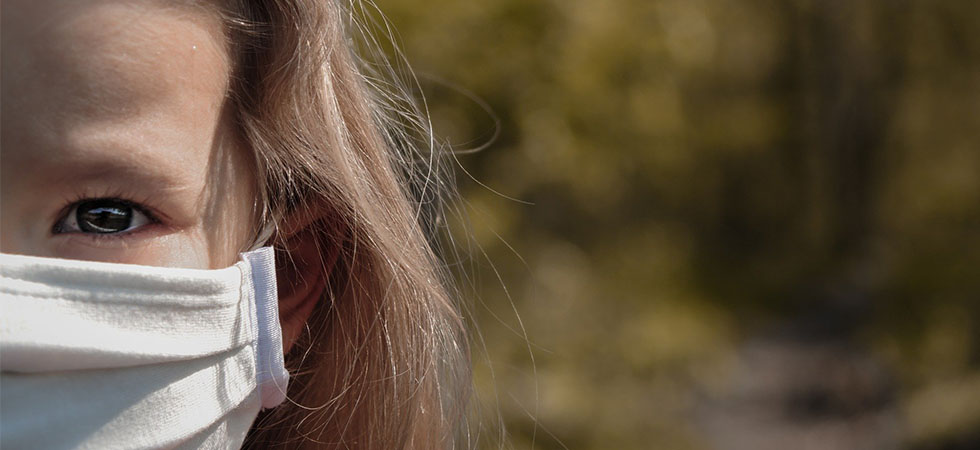Assumption Professor, Graduates Address Youth Mental Health

It has been a year since the pandemic forced businesses to a halt and required Americans to isolate. Mental health concerns have come to the forefront as cases of severe depression, anxiety, and suicide have increased. Of particular concern is the mental health of children.
Assumption Professor Adam Volungis, Ph.D., LMHC, will address these concerns in an upcoming webinar, “Pandemic Fatigue: Helping Youth and Families.” The webinar—which will also feature Assumption alumni Jacleeen Charbonneau, LMHC ’13, G’18 and Zachary Aggott, LMHC ’17—will focus on how youth and parents are overcoming the challenges of the pandemic to maintain a sense of normality. Prof. Volungis will join a panel comprised of psychologists, licensed mental health counselors, and school counselors who will share their experiences working from both the telehealth-based platform and in-person school services to help youth and their families experiencing COVID-19-related stress.
“Mental health concerns in children is widespread across the nation and world,” said Prof. Volungis. “While many adults are also struggling with the pandemic, especially parents, youth are enduring unique circumstances as it can be more difficult to understand the situation and many are without the comfort of their daily routines, such as schools, sports, clubs, social events, etc. For continued healthy development, children must have opportunities to engage in socialization with others and feel a sense of connecting, or belonging. Compounding the travails are those who are coping with the loss of a loved one.”
Prof. Volungis, who has completed research on mental health of high school students and college students (e.g., smartphone addiction and mental health; adversity [trauma] and mental health), plans to study the effects of the pandemic on students’ mental health this fall. In the meantime, the pandemic has been addressed in his undergraduate abnormal psychology course as well as his graduate courses when discussing anxiety, depression, and trauma.
According to Prof. Volungis, how children recover from once life returns to normalcy depends on how they fared during the pandemic. “There should be much caution for caregivers to expect that once the pandemic is over everything will be okay with their children,” he explained. “For many youth, there will be lasting effects for many months to years. Some will be able to cope with supportive caregivers. Others many need the additional support of a mental health professional.”
Prof. Volungis added that prior to the pandemic, there was already a demand for mental health professionals to treat the increasing trend of mental health needs. The pandemic exacerbated this concern. “To the point above, many youth will still need mental health care long after the pandemic is over.”
Assumption’s clinical counseling psychology program, which has a cognitive-behavioral therapy (CBT) orientation—an evidence-based approach to treat many mental health disorders—trains students to deal with such traumatic events and its effects like the pandemic. The alumni panelists, Charbonneau and Aggott, are two examples of former students who are now licensed professional effectively treating this population.
Aggott earned his master’s degree in clinical counseling psychology from Assumption and is extensively trained in CBT, Dialectical Behavior Therapy (DBT), and Cognitive Restructuring for PTSD. His practice, ZJA Counseling, is located in Northborough, where he currently provides individual therapy for older adolescents (15+) and adults.
Charbonneau, who also holds a master’s degree in clinical counseling psychology from Assumption, has worked in various settings, including as a clinician at Spectrum Health Systems, the Department of Youth Services, and at mental health outpatient facilities, helping children, teens, and young adults draw upon their innate strengths to overcome various struggles. Charbonneau currently owns a private practice in Walpole where she primarily offers telehealth services to young people experiencing symptoms of anxiety and depression.
“During the entirety of the pandemic, I have worked with children and teens in an outpatient setting via telehealth to provide access to care while ensuring everyone is physically safe,” she explained. “The most common presenting concerns that I have worked with during the pandemic includes adjustment disorders specifically related to COVID-19— whether these may be linked to school changes, major adjustments in one’s typical daily routine, or very limited in-person social access. Some children are also showing signs of developing a fear of returning to school, or school refusal, due to being well-adjusted working from home, or having been away from those who have previously bullied them at school.”
Charbonneau added that depression and anxiety disorders appear to be quite prominent in youth as well, as many may be processing the loss of milestone events in one’s life, such as prom or a proper graduation. Specific phobias, OCD, and Illness Anxiety Disorder involving COVID-19 have often presented within all grade levels.
“Because the pandemic is still active, I believe, at this point in time, it will be hard to tell what the true lasting effects of the pandemic on children’s mental health will be,” Charbonneau said. “My best guess is that it could depend upon each child’s level of resiliency, protective factors, and support systems. I would suggest that parents work to ensure the child’s environment is filled with support as the pandemic’s restrictions begin to lift, whether this is open communication with the school guidance counselor, ongoing therapy services, collaboration with the primary care physician, as well as open communication between parent and child. Due to the length of the pandemic, I think that some children who experience anxiety related to the pandemic might still be cautious to immediately re-engage as life returns back to normal. However, I do not believe we will know for sure until we return to some sense of normality.”
The webinar will take place on Monday, March 22 at 6 p.m., and can be viewed here.
